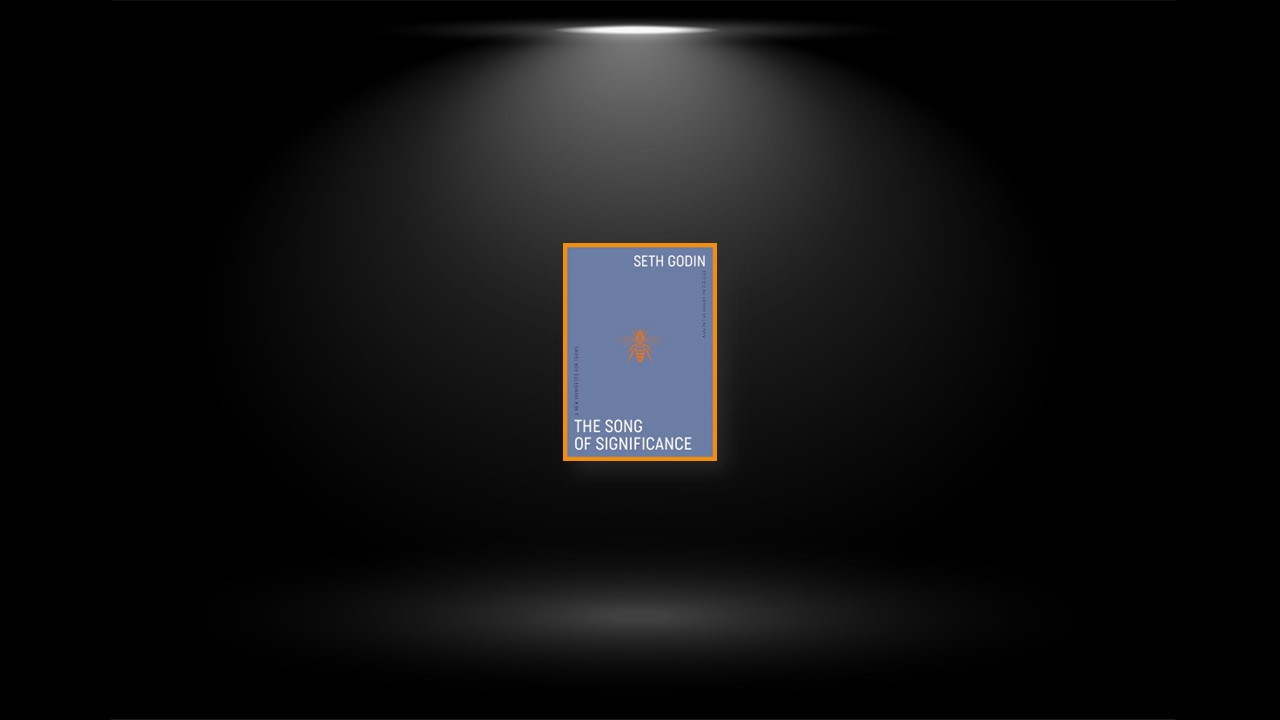The Song of Increase
At the end of a long winter, if the weather cooperates and the flowers are in bloom, a hive of honeybees will move into overdrive. Working in sync, each available bee will work to collect as much pollen as possible, creating a rebound in the hive’s honey supply.
Then, the queen’s council will build a special egg cell. The maidens will instruct their queen to lay a fertilized egg there and will feed it lavishly with royal jelly, allowing it to develop into another queen. Now the stage is set for the song of increase. Author and apiarist Jacqueline Freeman writes about this magical moment, an oft overlooked transition in the life of the hive.
One day, as the new queen is about to be born, the existing queen and as many as half the bees in the hive—her oldest and most experienced workers—will swarm and leave. In just a few minutes, tens of thousands of bees, coordinated without a coordinator, will fly away. They will leave behind their home, filled with food, for a smaller, younger crew and a new queen.
The sound the swarming bees make is thrilling to hear. The entire swarm is seeking possibility and growth, without knowing precisely where they’re headed. They’ll find a tree branch a few hundred feet away and gather into a tight ball to preserve their warmth. From there, they’ll quickly send out scouting parties, covering as much as thirty square miles, to find a new place to build a hive. The swarm only has a few days to locate, agree upon, and inhabit a new home—or they’ll perish.
What a bold leap into possibility. These bees embrace the challenge to get from here to there without a precise map, and to do it with cooperation, dignity, and connection. Without the song of increase, the hive stifles and fades away. And right now, many of us are living through a similar experience.
The Song of Safety
People are not bees, but we have many things in common. When facing an existential threat, it’s hard to move forward, difficult to create, and challenging to be generous.
Like humans, bees must maintain a hive temperature close to 98 degrees Fahrenheit. If it gets cold outside, they hunker together, shivering to raise the heat. When it gets too warm, they spread apart, allowing air to flow. But outside the safety of their swarm, bees exposed to temperature extremes enter a state of fatigue, becoming static and unresponsive.
In our culture, we’ve seen the same things happen. The global recession and the pandemic depressed innovation and connection. People sought refuge in their homes and had little energy to spare for positive forward motion. At work, this same instinct prevails. When people feel disrespected, unseen, or unsafe, they can shut down, phoning in the work and doing as little as possible, hoping to simply hold on to their job—at least until a better one comes along.
Burnout, dissatisfaction, and the banal parade of meetings conspire to stifle productivity and make work less engaging. We are pushed to seek safety, not increase. Until our existential needs are met, it’s difficult to produce the emotional labor needed for progress and possibility.
The Song of Significance
How do we move beyond our paralyzing desire for safety? We’ve indoctrinated ourselves to embrace industrial fealty, where our main job is to do what we’re told. We’ve built massive systems designed to produce goods and services beyond imagination, while we simultaneously market enough insufficiency and jealousy to sell them.
Give up your dreams and your soul, we promise each other, and you can buy some things that will give you status and satisfaction. Or at least let you forget what you gave up. While that promise may have worked well half a century ago, it rings hollow today. There is an alternative. It’s a different sort of increase, a better sort of safety.
It’s work that matters. It’s creating a difference, being part of something, and doing work we’re proud of. This is the song of significance. This is what motivates people to do the work that can’t be automated, mechanized, or outsourced. And this is the song that humans yearn to sing together.
Real Skills Are a Way Forward
If an employee at your organization took home a brand-new laptop every day, you’d have them arrested or at least fired. If your bookkeeper were embezzling money every month, you’d do the same thing.
But when an employee demoralizes the entire team by undermining a project, or when a team member checks out and doesn’t pull his weight, or when a bully causes future stars to quit the organization—too often we shrug and point out that this person has tenure, or key vocational skills, or really isn’t so bad.
But they’re stealing from us. The “us” is the key word. Not from the boss, not from the company. From us, together. Once we agree to get real, then the work changes. It begins by celebrating, amplifying, and rewarding real skills as a standard for all.
What Can We Teach?
James Clear writes about László Polgár, who taught all three of his daughters to play chess at the highest level. Clearly, chess is a skill, not simply a talent that someone is born with.
Vocational skills can be taught: you’re not born knowing engineering or copywriting or even graphic design, therefore they must be something we can teach. But we let ourselves off the hook when it comes to decision-making, eager participation, dancing with fear, speaking with authority, working in teams, seeing the truth, speaking the truth, inspiring others, doing more than we’re asked, caring, and being willing to change things.
We underinvest in this training, fearful that these things are innate and can’t be taught. Perhaps they’re talents. And so we downplay them, calling them soft skills, making it easy for us to move on to something seemingly more urgent.
At scale, organizations pay less attention to soft skills when hiring because we’ve persuaded ourselves that vocational skills are impersonal and easier to measure. If it’s easier to test for, it seems more important when selecting our team. And we fire slowly (and retrain rarely) when these skills are missing, because we’re worried about stepping on toes, being called out for getting personal, or possibly wasting time on a lost cause.
But these skills can all be learned, as obvious skills like chess or typing can be learned. We learn them accidentally, by osmosis, by the collisions we have with teachers, parents, bosses, and the world. Even though they’re more difficult to measure, that doesn’t mean we can’t improve them, can’t practice them, or can’t change the way we do our work.
Of course we can. Let’s stop calling them soft. They’re interpersonal skills. Leadership skills. The skills of charisma and diligence and contribution. But these modifiers, while accurate, somehow edge them away from the vocational skills, the skills that we actually hire for, the skills we measure a graduate degree on. So let’s uncomfortably call them real skills instead. Real because they work, because they’re at the heart of what we need today.
Leadership and Dissent
How many people yelling “Fire!” will ruin your experience at the movies? There’s no requirement to issue a bullhorn to every person who shows up in your community. Trolls don’t need to be amplified. That doesn’t mean that feedback can’t exist. In fact, significance requires that leaders and the entire community create the conditions for better, and better comes from feedback.
The opportunity is to be really clear about the goal. If you say “This bus is headed for Oxford,” then the discussion is open for people to suggest that you missed the exit, that you’re driving on the wrong side of the road, or that you’re running behind.
There isn’t, however, any time or room for someone to whine and complain about the fact that we’re going to Oxford. The sign is clear, the promise is specific. Get real or don’t play. In direct contrast to this, an autocratic leader isn’t open to thoughts on how to get to the destination; they’re simply looking for compliance and obedience.
A significant organization is aligned in culture and in goals, and the result is that all of us end up getting further and faster than any of us could on our own.
Professionals Say No
Task-oriented labor is indoctrinated to simply ask for details. Get it done, fast and cheap. A professional, though, brings insight and reputation to the work. If they’re not speaking up, then they’ve sacrificed the very expertise and authority they worked so hard to earn. When a professional disagrees, alters the plan, or refuses to go along, they are doing the truly hard work of being a professional.
If we’re asking our leaders to speak clearly and to describe the road ahead, we have to repay their candor by enrolling in the journey or choosing to stand aside.
The Risk of Listening
Our goal in making change with our work is to help our customers and coworkers become what they seek. This requires empathy. The empathy to realize that others don’t know what we know, want what we want, or see what we see. And the empathy to understand that the work we do isn’t for us, it’s for someone else.
It’s possible for a middle-aged man to work at a pantyhose company, for an adult to design toys for toddlers, and for an oncologist in perfect health to help a cancer patient. We can speak and listen to one another. We can learn about the impacts we make and the changes we produce. Of course, this feels risky. It puts us on the hook, makes the work real, and highlights the gap between what we expected and what we’ve actually done. Our relationships are a result of our ability to listen. And when we listen, we earn trust and create connection. But only if we care enough to dance with our fear.
Clarity and the Words Unsaid
Sonder is the name for a realization that eventually hits each of us: other people have noise in their heads like we have noise in our heads. And one way we deal with our noise is in the words we choose to say (or don’t say). And one way that people deal with their noise is by how they choose to hear the words we say.
We think we’re communicating, but we’re really not. Often, significant work requires us to develop more empathy than we might be comfortable with. Our understanding might not be their understanding. We can acknowledge that others didn’t hear what we said the way we said it. Or realize that perhaps the person we’re engaging with said something other than the words we’re sure were uttered.
Part of the work of getting real is to acknowledge that we’re dancing with humans, not writing computer code. If we can agree to be clear, specific, and kind in our language, we’re off to a good start. If we can go a step further and agree to give each person on our team the benefit of the doubt—and to ask for clarification when we’re confused—we’re much less likely to cause pain, confusion, or simply a disruption in our journey.
Pilots developed very specific language to be used when talking to the control tower. It works at any airport, in any country, anywhere in the world. Agreeing to be clear is a fine place to start.


